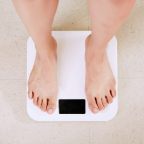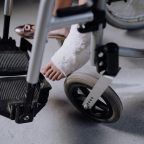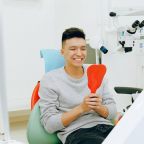
If You Get Hay Fever Early, Here’s Some Clever Hacks to Help
When we think of hay fever most of us will assume it starts when the weather hots up in May, but for tree allergy sufferers, symptoms occur in March and April. Hay fever is the most common allergy in the UK with around 1 in 5 being affected by it. And its effect on our working lives is nothing to be sneezed at; it is estimated that productivity drops by 25% and that 29 million working days are lost a year [1]. Airborne allergens expert Max Wiseberg tells us more about this debilitating condition and has some clever hacks for early season sufferers.
“Hay fever or seasonal allergic rhinitis is an allergic reaction to pollen,” says leading airborne allergens expert Max Wiseberg, “and other airborne particles such as pet allergens. Although most people who suffer from hay fever are allergic to grass pollen, many early season sufferers are allergic to tree pollen, which starts as early as February and peaks in March and April each year.”
“Common symptoms include sneezing, a runny or stuffed up nose, itchy and watery or streaming eyes, nasal congestion and a general stuffed up feeling in the nose and throat. Some people also experience itching around the face and mouth including an itchy mouth and a burning sensation in the throat. Headaches and wheezing can also occur.”
“Constant nose rubbing and blowing can also leave sufferers with skin irritation and sensitivity. All of this can lead to tiredness, fatigue, exhaustion. Hay fever can also affect how you sleep and cause sleep disturbance and difficulty getting to sleep. These symptoms can in turn zap your energy levels leaving you feeling low and sluggish. Chronic hay fever sufferers may experience more severe or prolonged symptoms.”
“Stopping the pollen getting in to your body is a good strategy for dealing with symptoms. If it’s not in your body, you can’t react to it! Use an organic drug free allergen barrier balm such as HayMax (www.haymax.biz), which can be applied to the nostrils and bones of the eyes in the morning and throughout the day. It has been proven to trap over a third of pollen particles before they enter the body [2] where they can cause symptoms.”
“There are many products available, both drug-free and pharmaceutical, which help deal with the symptoms of hay fever once they occur. Conventional treatments include antihistamine tablets and capsules, steroid nasal sprays and eye drops.”
“Antihistamine tablets and capsules can relieve most symptoms – sneezing, itchy, runny eyes, skin irritation, itchy nose and throat – but are less effective for nasal congestion. Antihistamine nasal sprays can quickly ease itching, sneezing and watering but generally only proof against mild symptoms. Steroid nasal sprays and drops can reduce inflammation in the nose and sprays sometimes clear eye symptoms too. Eye drops may reduce itchy, watering, swollen eyes.”
“You can create your own hay fever first aid kit, consisting of one or more natural product (such as an allergen barrier balm), one antihistamine, one nasal spray and eye drops.”
“There are several things you can do to reduce your exposure to pollen. Wear wraparound sunglasses when outdoors to prevent pollen particles coming in contact with your eyes. Tie your hair up and wear a hat when outside to prevent pollen particles being caught in your hair.”
“Close windows and doors to prevent pollen blowing into your home. Consider using an air filter/purifier with a HEPA (High Efficiency Particle Arresting) filter to capture the pollen. Vacuum the house regularly (especially beds and fabrics) to remove pollen particles and damp dust surfaces to remove dust and prevent it being dispersed back into the air.”
“If you own a pet then ensure that it is well groomed and shampooed as much as possible to remove pet allergens and pollen particles. Shower at night before sleeping to remove pollen particles and pet hair from your hair and body. This will also help you get a good night’s sleep and feel less sluggish the next day.”













